
Books to Brighten up a Summer of Sport
21.06.22
Seasons come, seasons go Philosophy Football's Mark Perryman finds a heap of sports books to provide a summer's worth of sporting hope and healthy goodness
I first came across Michael Calvin via his extraordinary one season biography of the Millwall FC first team Family: Life, Death and Football. Not since Pete Davies' peerless All Played Out account of the sporting summer of Italia 90 England squad had a writer revealed in such exciting emotional detail the making of a football team. After Family Michael has become the pre-eminent chronicler of the state of mod£rn (sic) football, in many ways his latest Whose Game is It Anyway? Football, Life, Love & Loss written at the height of the Covid-19 crisis, is the culmination of this chronicle. For readers of fine critical football writing lets hope not.
Ryan Baldi's The Dream Factory: Inside the Make-or-Break World of Football's Academies is a tightly focused piece of work, and that's no criticism. Almost all successful Premier League clubs depend on the success of their academy system, developing the most talented local recruits from the age of nine years. Yet what separates the tiny percentage who make it into the first team from the overwhelming majority who don't? This book not only seeks to find the reasons why but provides a showcase for alternative models; internationally, lower divisions and non-league towards turning raw talent into finished 'product'.
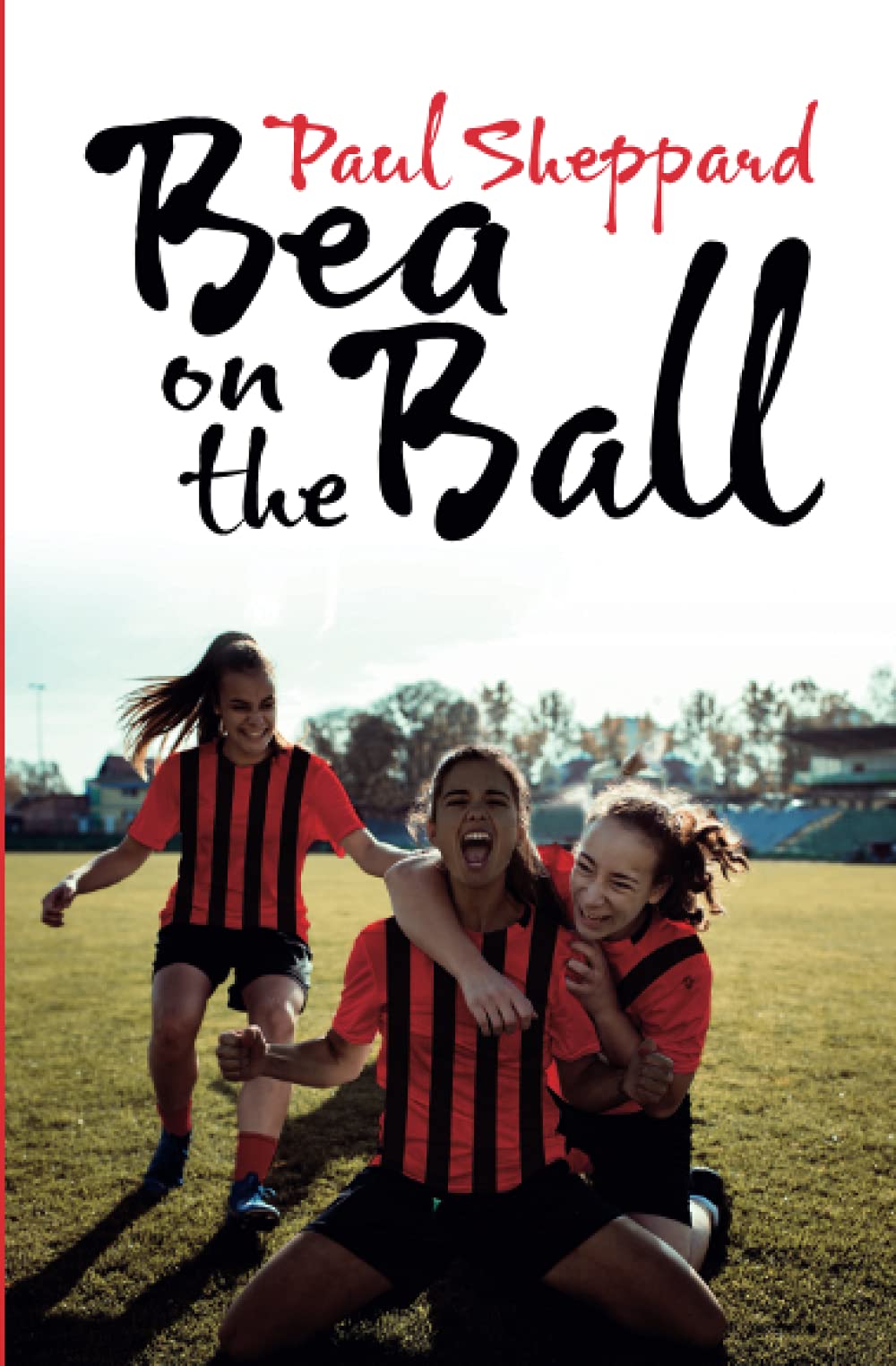
The fantasy of 'I could have been a contender if only...' fuels the fandom of many male fans as they swap the youth football of their teenage years for a life of watching the game from sofa, barstool or the lucky few, the stands. In the 2020's that same teenage fantasy is increasingly shared by teenage girls too, with pathways to playing more open the women's game is centred on playing rather than the simply watching of the men's game. Perfect to accompany a generation of girls being inspired by the Women's Euro 2022 Paul Sheppard expertly turns the kind of excitement this is sure to generate into a superb young adult novel Bea on the Ball in and around the very real experience and achievements of Lewes Women's FC. Unashamedly inspirational, and a right fine read because of it.
The wider world of women's football is superbly covered by the collection Football She Wrote ranging from the historical and club-specific to the playing side, fandom and the cultural impact of the fast-growing popularity of the women's game. More of this writing please, there is so much to learn from it whichever 'half' of football we follow. Testament to this is The History of Women's Football by unarguably this half of the game's pre-eminent historian, Jean Williams. With England as hosts and pre-tournament favourites Euro 2022 could be just the spur for an avalanche of new writing on the women's game. Yes please.
For the men's game it will be a short summer off ahead of the November Qatar World Cup. A time to reflect on how football remains most definitely a sport of the oxymoronically two unequal halves, gender one part of the scales of inequality that rule the game, women's football vs men's one binary. Another is league vs non-league, to which my answer is simply there's nothing 'non' about non-league. Aaron Moore's Fields of Dreams and Broken Fences : Delving into the Mystery World of Non-League Football provides hope that here more than anywhere another football remains possible.
A really bad choice for a title " I Hope You Die Of Cancer" : Life in Non-League Football shouldn't obscure the brilliance of the latest in 'The Secret...' genre, first made famous of course by The Secret Footballer. Co-writer Marvin Close enables the anonymous player to delve deep into the realities of the part-time players with a full time commitment to their sport, the harsh reality of being outside the league with hope for rising thru' the tiers in equal measure makes for a read quite unlike most player not-exactly tell-it-alls.
Park Life : Four seasons of Rhondda football by Peter Roberts tells-it-all across an entire valley's Sunday League footballers. The Rhondda, in the 1920s and 1930s the heartland of a very distinctive Welsh communism, an educated working class militancy that persisted right through to the miners' strike of 1984-85. Today the valley is a crucible of post-Thatcherite deindustrialisation, yet still a 'red wall' with a splash of Welsh civic nationalism. A place where the grassroots game survives if not thrives, most of all, as Peter Roberts expertly recounts, it is a part of, not apart from, the community where the game is played.
A very different tale is told by Martin Calladine and James Cave in their exposé of a book Fit and Proper People : The Lies and Fall of OwnaFC a book that reads more like a thriller, for avoidance of doubt this is meant as a compliment, than an account of club ownership gone wrong. It is close to being every fans' dream, to own a club, to put the world of football to rights. 'OwnaFC' was set up to feed that dream, but as the exposure details it proved to be an unscrupulous means to first exploit the fantasy, and then kill it off. All in the cause of making a quick buck at others' expense. Is another football possible? It sometimes seems not, the end of season parade of the 'big clubs' into the cartel the Champions and Rich Runners Up League resembles has pretty much put paid to that dream. But that doesn't means its impossible, and for any convincing read the all-time classic on the subject, Jim Keoghan's Punk Football: The Rise of Fan Ownership in English Football.
Scattered examples of fan ownership remain a vital and practical inspiration but remain very much the exception. How to venture towards full-scale dismantlement of the business(sic) of sport, specifically the outlier in this process, football? Joe Kennedy's Games Without Frontiers, now in a new and expanded edition, mixes the doing, pick-up games of surprising seriousness of intent, the watching, with one notable exception, lower division but mainly non-league, and the thinking, Joe mixzes it al upl to provide a quite sublime mix of enquiry and explanation. Bordering on the unique this is a book of revelation and in the right hands, or should that be the wrong hands, the revolution that every sport needs. Read, relate, revolt.
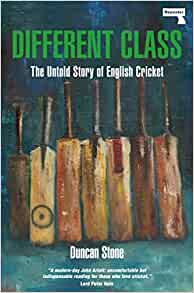
Any kind of serious understanding of why sport is such a source of both unbridled joy and unscrupulous exploitation begins with a recognition that all sports are socially constructed. Or to put it another way, to stand in opposition to the mantra 'Just do it' because sport is never 'just' done. Once cricket would seamlessly take over from football and rugby as the pre-eminent summer team sport. Is that still true? Duncan Stone's magnificent Different Class: The Untold Story of English Cricket stands in the tradition of CLR James and Mike Marqusee, writers who place the social construction at the centre of understanding this most socially constructed of sports. Duncan achieves this via cricket as recreational, far beyond the idiom of the 'village green' too, rather than the professional county and test cricket game. An original and much needed reassertion of the sport's roots in the era of the Indian Premier League and the 'Hundred'.
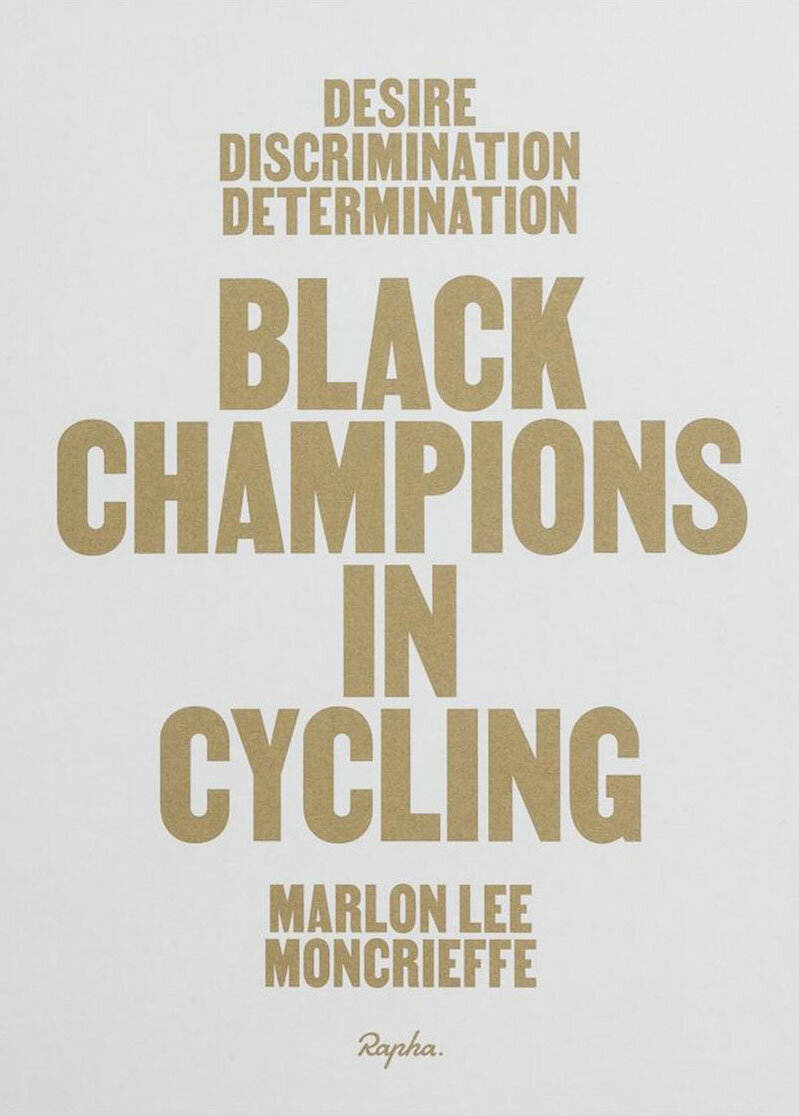
Bradley Wiggins' first British winning of Le Tour helped elevate this most Francophile of events into a major part of the British sporting summer. Yet British cycling remains the whitest of sports. Desire, Discrimination, Determination : Black Champions in Cycling by Marlon Lee Moncrieffe is a beautifully designed book full of angry purpose towards understanding why? An admirable publishing venture too, published by the go-to producer of the most fashionable cycling kit imaginable, Rapha. Mixing history, analysis, and cycling culture this is an incredibly innovative and important book.
Post Wiggo, a cycling boom, mirroring in lots of ways the early 1980s running boom. Elite success but crucially in sports socially constructed to maximise mass, mainly recreational and non-competitive with no rules to speak of, no expensive facilities requited, kit not too pricey either. All, more or less to the good. Shane Benzie argues however there's a bit more of the 'less' than we might assume. His book The Lost Art of Running travels the world to rediscover the most basic exercise on earth, putting one foot in front of the other at ever increasing speed over ever-lengthening distances. A book to inspire, and for the ambitious to seek to follow in the footsteps provided as well. Bright summer mornings, light long into the evening, sunshine and a cool breeze, what excuse can there be found not to exercise? For the vast majority, too many to mention.
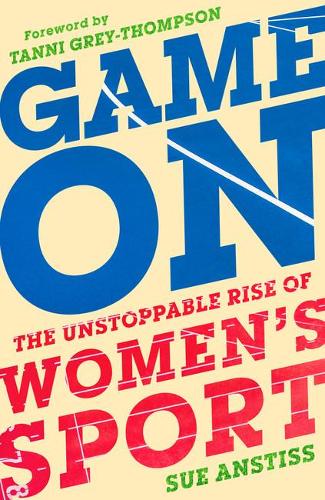
There are many causes of this, in part an explanation lies in how sport's history shapes its present. Definitive proof of this can be found in Sasha Abramsky's revelatory read, Little Wonder or to give the book's full title 'the extraordinary story of Lottie Dod, the world's first female sports superstar'. Extraordinary and a half, Olympics Archery gold medallist Lottie also won both Wimbledon and the British women's amateur golf championship, and played hockey for England. So why have precious few heard of Lottie? 'Hidden from history' as generations of feminist historians have taught us. Lottie's era was the early twentieth century Let's Get Physical : How Women Discovered Exercise and Reshaped the World by Danielle Friedman is focussed on the 1960s, the era of second wave feminism. The link between exercise and liberation may not be immediately obvious, Danielle ensures they become so while never surrendering to the self-absorption a politics founded on our bodies, ourselves can on occasion pander to. Sue Anstiss is never going to make that mistake, campaigner, podcaster, Sue helped found both the Women's Sport Trust and Women's Sport Collective and is now heading up a new outfit, Fearless Women, to drive the changes women's sport still needs. Game on : The Unstoppable Rise of Women's Sport brings together Sue's vast experience of how sport (mis)treats women and overflows with ideas to both reverse this and to the benefit of all, women, and men.
To suggest it isn't 'just' women who suffer from how sport has been constructed to the benefit of some but not all isn't to sideline other exclusions but to seek an overarching understanding that takes each and every exclusion seriously, equally. There's few better starting points towards this than Sweat : A History of Exercise by Bill Hayes, a social history of the entire philosophy, culture and practice of exercise. No good society should be without the ambition to make exercise as freely, widely and pleasurably available as possible, the absence of which across the UK is startlingly obvious every summer. Bill helps us to understand why societies fail to fulfil such a modest but necessary ambition and produce instead obesity and physical inactivity in abundance, a 'summer of sport' as something to watch from the sofa or wear as a fashion accessory rather than as the advertising slogan (irony alert) would suggest ' just do it'.
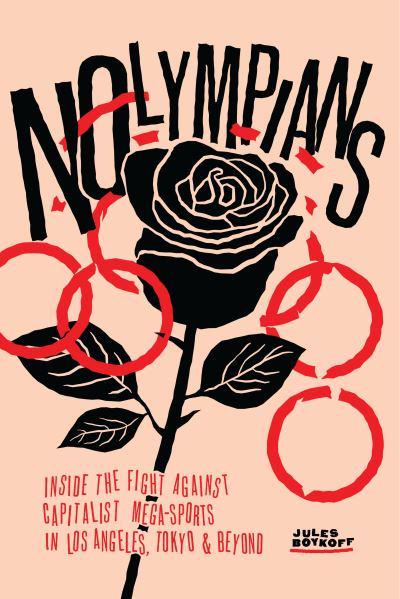
Since the 1984 Los Angeles Games the commercial monster that the Olympics became has sought to solve such societal failings via the twin Olympian myths of legacy and role model. Few writers have done more to dismantle these delusions than Jules Boykoff, as the tenth anniversary of London 2012 approaches this July and every claim made of what those Games would achieve has been proved to be an absolute fiction Jules' latest book NOlympians : Inside the Fight against Capitalist Mega-Sports in Los Angeles, Tokyo and Beyond should be required reading for every politician, sports administrator, media commentator who cheerleaded for what 2012 would achieve in the, probably forlorn, hope they won't be fooled again. Except they will, my advice is to approach any legacy claims made by Birmingham's Commonwealth Games via attendant politicians and media with extreme caution. If we are ever to overcome these self-defeating sports mythologies the question we should really be asking is 'What is Sport for?'
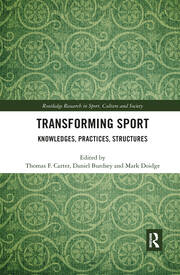
Two academic books which prove hugely helpful towards finding some answers are Transforming Sport edited by Thomas F. Carter, Daniel Burdsey and Mark Doidge, and Adam Kadlac's The Ethics of Sports Fandom. Both books take a multi-sport approach.Transforming Sport unpicks the power relations that serve to structure, in most cases limit too, the otherwise joyful potential of sport as a means to human liberation. This unfulfilled potential is defined, quite rightly in my view, by most of the book's contributors as the ability, or inability to 'do' sport. Adam Kadlac focusses instead on the fan, the spectator, for whom joyful potential is all about what is being watched, a potential Adam locates not simply in the joy of our team winning rather than losing but the broader views of society shaped via being a fan. There is no doubt this exists though the extent to which such consciousness is subject to commodification, the obvious example being a 'corporate anti-racism' in and around football, which means sadly that by and large another potential of sport, Adam's consciousness-shaping, remains unfulfilled.
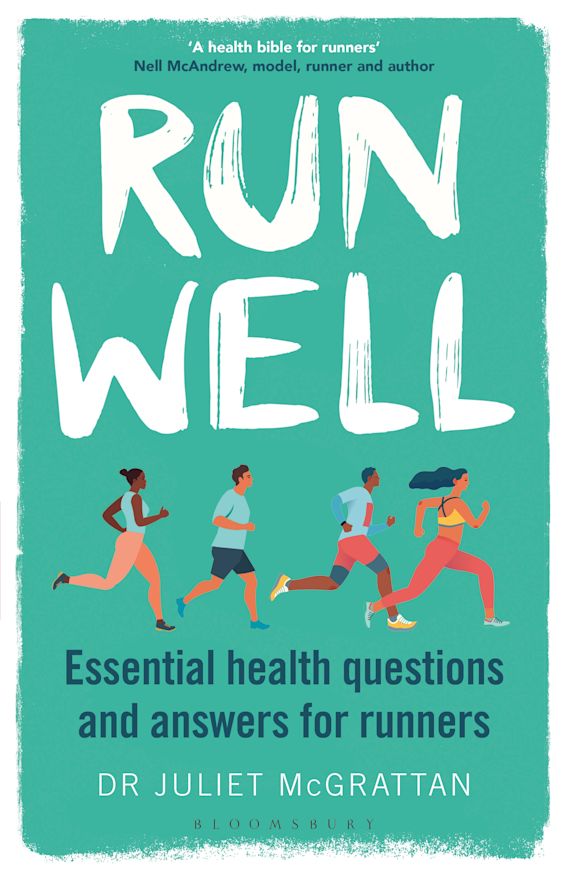
In facing down the failings of modern sport to engage the 'doing' part, ever-decreasing levels of participation continue despite ever -increasing TV ratings for major sporting events, there is a tendency towards an undiluted instrumentalism to encourage those yet to 'just do it.' This is understandable but if it was as simple as get fit = get healthy those low participation levels would never have sunk so low in the first place. Juliet McGrattan's Run Well : Essential Health Questions and Answers for Runners is an admirably comprehensive read for the keen runner and helps readers avoid many, including unexpected, pitfalls. As a runner myself I certainly learnt a lot but there remains a mythology of running and health. Knees are the obvious ones, but more generally increased mileage almost inevitably reduces resistance to viral infections. Running is about a lot more than health, and for most competition too, its about freedom, time we can call our own, the sheer pointlessness of it. Perhaps a more appealing connection to be made is with the pleasures of eating. This may seem counter-intuitive but most who do sport aren't wafer-thin. In fact its another instrumental myth of exercise, it makes us hungry, we compensate with over-eating in the knowledge we've exercised. There are infinitely more efficient ways to lose weight than exercise. Instead of ignoring this there's a very welcome emergence of books that fuse the joys of exercise with a celebration of what to eat afters, before too, and I stress recipes to enjoy rather than glorified calorie counts. Ultra runner and chef Billy White's Eat, Run, Enjoy gets that mix right in the title and like any good runner doesn't look back, via extraordinary photography, runners and recipes, those runners recounting how much they enjoy their food, plus great meals to cook from breakfast to bedtime snacks. For those who prefer to exercise on two wheels Alan Murchison provides the meals to accompany in The Cycling Chef : Recipes for Performance and Pleasure. The mix, rewarding both body and taste buds, is the perfect antidote, everything from breakfasts and broths to smoothies and suppers, not four words usually associated with 'just doing it', more's the pity.
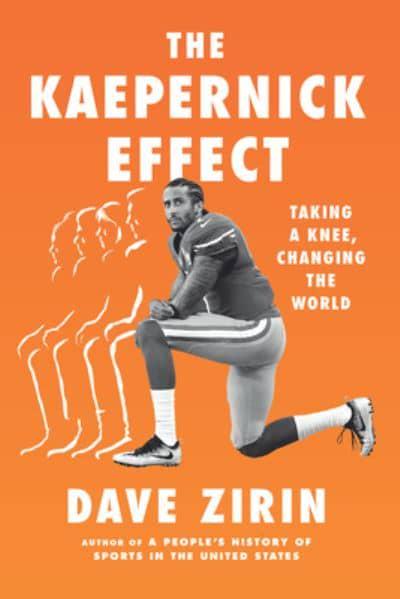
There are precious few sportswriters in the UK media like Dave Zirin, on occasion Jonathan Liew comes closest, or in that hinterland of academia-media David Goldblatt . Dave Zirin combines being an unapologetic fan, broadcaster and writer, and unashamedly political, specifically of a leftwing inclination. Older readers might well at this point recall, and sorely miss, the late Mike Marqusee who would effortlessly tick all those boxes too. Dave Zirin's latest The Kaepernick Effect : Taking a Knee, Changing the World (available from September in paperback) applies all this to unarguably the biggest social movement in sport of the early twenty-first century, 'taking the knee'. What Dave does is situate Colin Kaepernick's original action where it belongs, as an act of rebellion, widely reviled and resisted by both sporting and political officialdom at the time. Yet at a popular, black athlete-led, level a popular resource of rebellion that connected with a global audience outside of sport to symbolise anger and change sparked by the police murder of George Floyd. Of course it is a good thing that this in turn moved the superstars and rulers of sport to action too but what Zirin teaches us is that withoutthe roots in Kaepernick's rebellion the ever-present danger is sanitisation, incorporation and in the end inaction. My top choice of a book of what may or may not be a long hot summer weather wise, but to heat up the dull sobriety of both politics and sport I'm certain there's no better weapon in our hands to read.
Mark Perryman is a research fellow in Sport and Leisure Culture at the University of Brighton and co-founder of the self-styled 'sporting outfitters of intellectual distinction' aka Philosophy Football